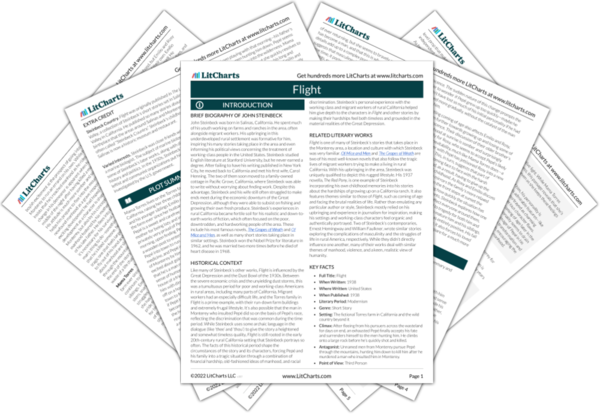In the moment before the assailant fires the shot, Pepé fails a trial for which he has been trying to prepare himself. While he quickly gets his horse moving and flees from his pursuer, he eventually lets his guard down and assumes that he has escaped from the danger for now. But out in the wilderness, Pepé is
always potential prey, and he pays dearly for briefly forgetting this. Leaving his hat behind in his rush emphasizes his loss of innocence by reminding the reader of the earlier scene when he was excited about wearing his hat into Monterey. Now that he’s no longer an innocent farm boy, he leaves behind his treasured hat without a second thought, focused entirely on his survival. By forgetting his hat, he leaves behind a piece of his innocent past.
